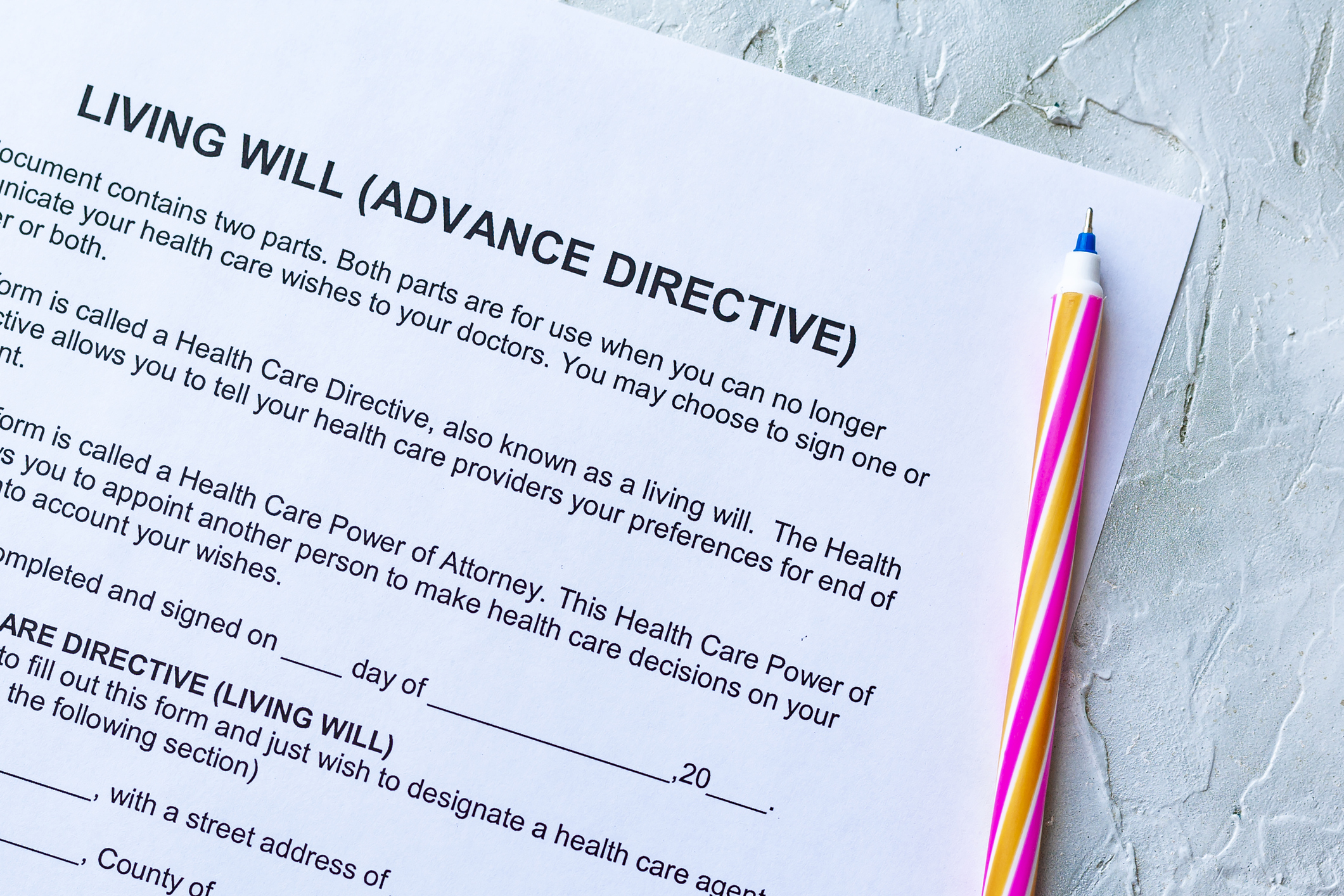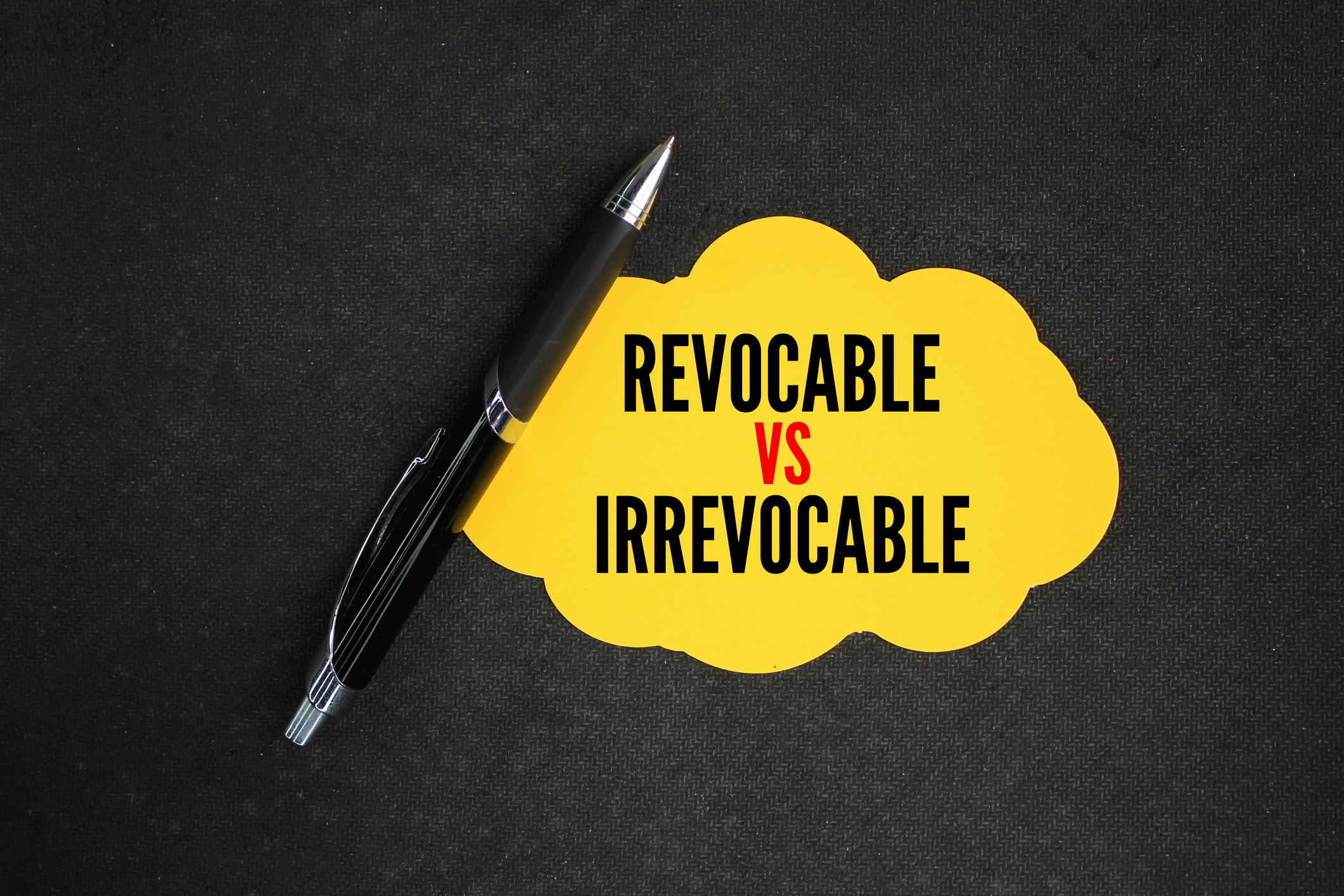
Estate planning isn’t about how much you have. Instead, it’s about protecting what you’ve spent a lifetime building. You've worked hard for years to pay down debt, pay off your home and grow your savings. A solid estate plan ensures none of that disappears in probate fees, long-term-care costs or excessive taxes. It keeps you and your spouse in the home you’ve shared for decades and makes certain your grandkids receive the inheritance you intended, not the IRS.
A simple, up-to-date will, revocable living trust, powers of attorney and healthcare directives can be completed in just a few hours with the right financial advisor, and give you the peace of mind no amount of money can buy. Do it while you’re healthy and clear-headed, so your loved ones never have to make agonizing decisions or fight in court while grieving. You’ve taken care of everyone else your whole life — now take one afternoon to review these 10 things you should know about estate planning. But first, why is an estate plan even necessary?
Why have an estate plan?
An estate plan lays out how you want your assets handled at your death or when you’re physically or mentally incapacitated. No wonder most people procrastinate creating one.
“It’s shocking how many people don’t have their documents in order,” says Bruce Tannahill, a director of estate planning with MassMutual. According to the 2025 Wills and Estate Planning Study by Caring.com, only 24% of Americans have a will, a significant decline from 33% in 2022. Nearly 45% of respondents without a will cited procrastination as a primary reason, and 56% noted it’s not a priority or they feel they lack sufficient assets
While an estate plan cannot prevent death or illness, it can protect your family from stress, grief and emotional fallout.
“Once you’re gone, it’s a really hard time for your family. People don’t always react in the best ways,” says Anne Rhodes, chief legal officer with Wealth.com, which provides estate planning software for financial advisers. “Your estate plan gives them clarity on what to do and a chance to move on.”
Here are 10 things you should know about estate planning:
1. Estate planning covers decisions in life and death

Estate planning lays out what will happen to your property at death. Who gets what and when? Do you want to leave anything to charity? Who will be the executor in charge of paying off your last debts and distributing your remaining assets?
An estate plan can also explain your wishes when you have a serious medical condition or can’t make decisions yourself by naming a family member or trusted friend to decide for you. You can create specific instructions, like whether you want to be an organ donor or want to refuse treatment when on life support with no chance of recovery, in an advance directive.
“Loved ones who have to make these decisions on their own always feel like they killed mom or dad,” says Lindsay Graves, an elder law attorney and founding partner of The Graves Law Firm in North Canton, Ohio.
Careful planning can also help avoid estate planning calamities, like the wrong relative inheriting your money.
2. You need more than a will

A complete estate plan has a few documents. Your last will lays out what you want to happen with your property at death. A financial power of attorney (POA) names someone to manage your financial accounts and pay your bills when you’re alive but unable to.
A healthcare POA names someone to make your healthcare decisions. You can also create a healthcare directive, laying out your preferences for medical treatment in different situations.
3. Have a plan, or the government decides for you
Each state has laws for what to do when someone dies or becomes incapacitated without an estate plan. “You lose the opportunity to make your voice heard,” says Wealth.com's Rhodes. The person who ends up making your health care and financial decisions might not be the one you want.
Inheritance laws prioritize a nuclear family structure, meaning the money usually goes first to your spouse and children. You need an estate plan if you’d like to leave anything to charity, friends and other family members.
4. Beneficiary designations override your will
Retirement accounts and life insurance policies ask you to name a beneficiary to inherit the money after your death. These instructions override whatever you may have written in your will and other estate plan documents.
For example, if you still have your ex-spouse named as beneficiary on your 401(k), they inherit the money rather than whoever you named in your will. You can update beneficiary designations by sending in a short form to the company managing the account or insurance policy.
5. Trust funds provide control after death

A trust fund is a legal entity that holds property for the benefit of someone else. You can set up a trust fund to control how your money and property are distributed after your death. For example, if you’re worried about your 18-year-old grandson being able to manage a six-figure inheritance, you could put the money in a trust fund with a delayed distribution, mandating that your grandson gets the money only after turning 25 or finishing college. In general, you will want to decide between a revocable vs. an irrevocable trust.
6. A good plan speeds up inheritances
When you die, the state courts review your will and distribute your assets to the listed heirs through a process called probate. If you don’t have an estate plan and your family members fight over the inheritance, they could waste everything on legal fees. Even if probate goes smoothly, the process can still take several months.
Accounts with beneficiary designations sidestep probate and go straight to the named beneficiaries. You could also set up transfer-on-death (TOD) instructions on bank accounts, brokerage accounts, vehicle titles, and home titles for the same result, says Tannahill from MassMutual.
Another option is to set up a revocable trust. You put property into the trust fund, but you can take it back as needed. When you pass away, the trust passes along the property according to your instructions without going through probate.
7. Estate planning saves on taxes inherited by your heirs

The estate tax is a tax charged on large property transfers at death. In 2025, the federal exemption is $13.99 million per person (up from $13.61 million in 2024) and is not an issue for most people. However, 18 states and the District of Columbia charge some form of estate or inheritance tax with much lower limits. Oregon taxes estates starting at $1 million and Massachusetts at $2 million. You could minimize these taxes by planning in your lifetime, such as making more gifts or using trust funds. After you pass away, it’s too late. “The state legislature is not kind enough to do tax planning on your behalf,” says Rhodes from Wealth.com.
8. Remember your pet and online accounts
If you have a cat, dog, or other animal as part of the family, include what you want to happen to them in your estate plan. Who will take over the pet, a friend, or a local humane society? “You could set up a pet trust specifically to help the other person pay for pet food, vet bills, and other needs,” says Tannahill.
You need a digital estate plan to enable your executor and family to access your digital assets if you pass away. You should also consider whether you have any digital photos or files you want families to have. Make sure to send them along while you still can. Consider sharing passwords to social media accounts if you want a family member to close them at your death.
9. Lawyers and online services can prepare your documents

The cost of preparing your estate plan depends on its complexity and where you live. A lawyer might charge around $1,000 to create a will and the POA documents at the low end, to between $3,000 and $10,000 if you have a more complicated estate and want to set up trusts. Estate planning for millionaires is a different animal from an average family's needs, and there are plenty of ways to save money on estate planning.
Online services like LegalZoom or Trust & Will can prepare your documents for a fraction of the price. These could be an alternative if you feel your estate plan is simple and you are comfortable with a DIY approach.
Online programs can overlook technical questions, warns Graves, the attorney from Ohio. “You may answer a question where an attorney would say that’s something we need to know more about, that a computer might miss.” For example, you leave money to a family member with special needs, which accidentally leads to them losing government benefits.
10. Review your plan every few years
If you drew up a will 20 years ago, chances are your situation and wishes have changed since then. Laws also change. You should formally work with a legal professional to check your estate plan for mistakes and give it a general review at least every five years, recommends Graves. If you have a good relationship with the lawyer who created the documents, she suggests calling them every two years to ask if anything has come up that could affect your plan. “Some practitioners proactively contact clients, but not all do.”
If you’ve been holding off on creating or updating your estate plan, Graves urges you to figure everything out before it’s too late. “We’re seeing an uptick in profound medical issues happening at younger ages. You never know when life will throw a curveball.”
Note: This item first appeared in Kiplinger’s Retirement Report, our popular monthly periodical that covers key concerns of affluent older Americans who are retired or preparing for retirement. Subscribe for retirement advice that’s right on the money.
Want more guidance on retirement savings? Sign up for Kiplinger's six-week series, Invest for Retirement.







